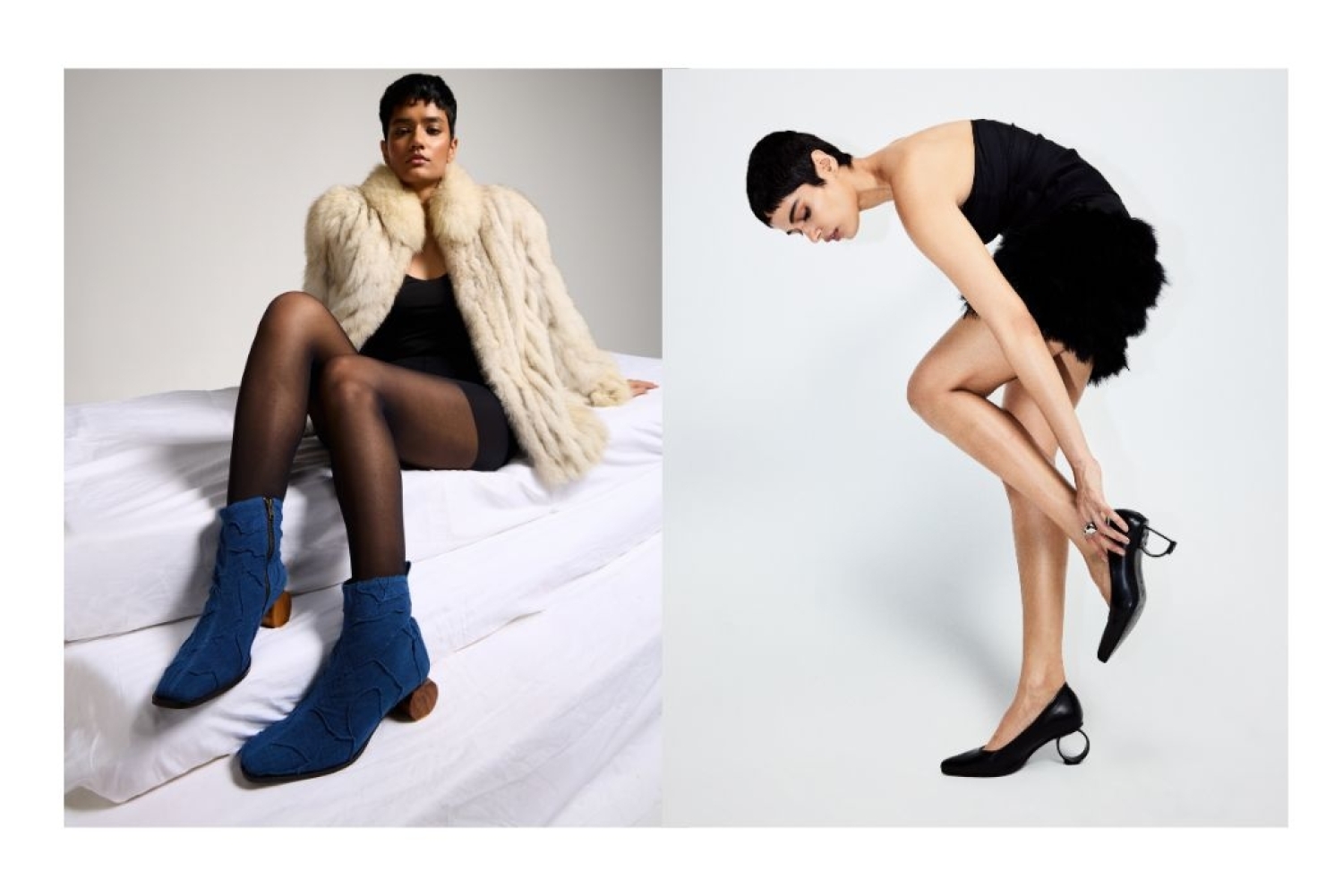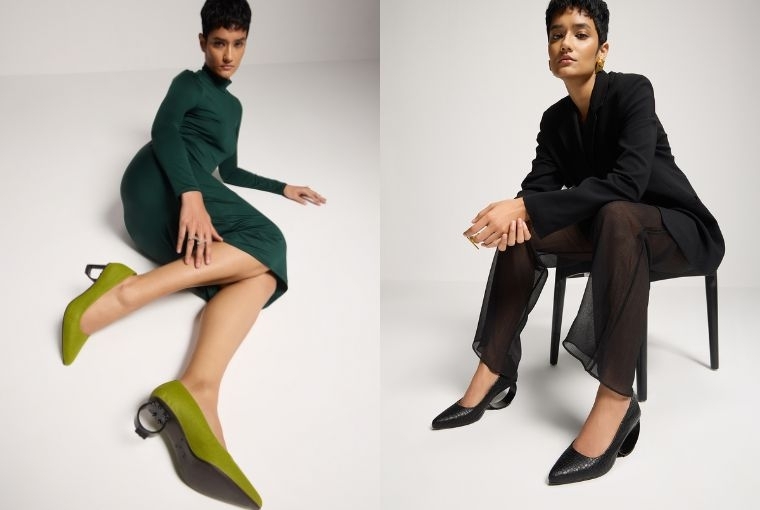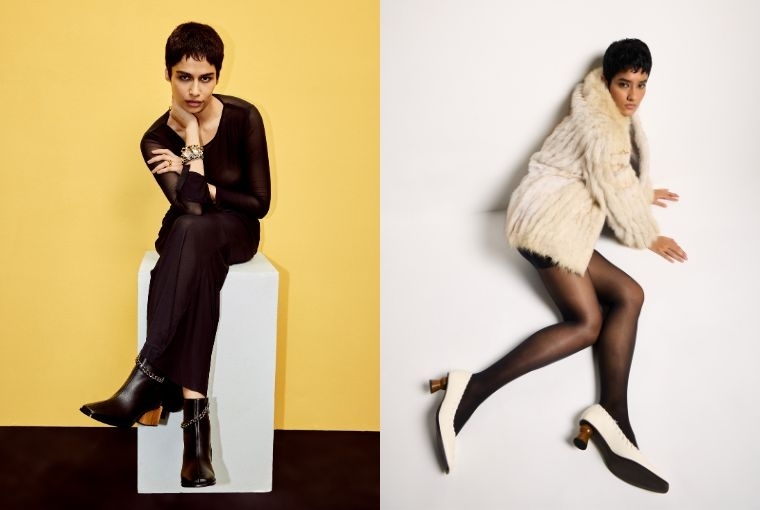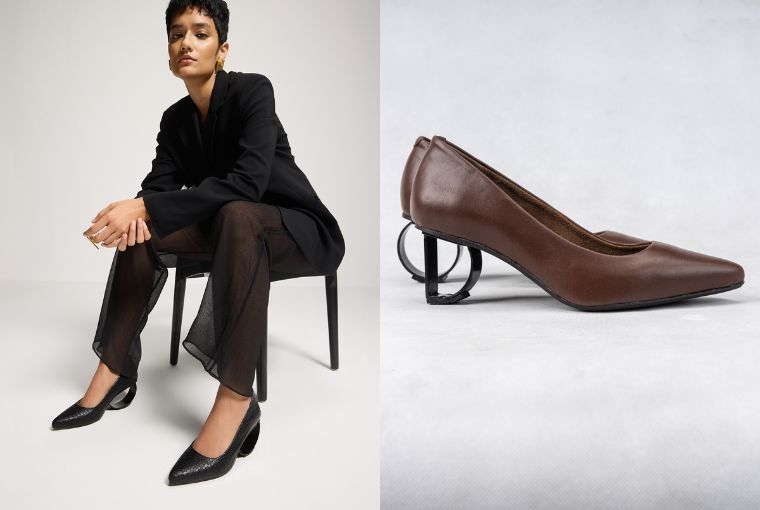

Disobedience is a footwear brand founded in 2020 by Anita Soundar, a designer with a background in chemical engineering and industrial entrepreneurship. Built on the principles of sustainability, craft, and innovation, Disobedience challenges conventional footwear design by blending indigenous materials, artisanal techniques, and experimental forms. Anita’s journey reflects her commitment to making shoes that are striking, environmentally responsible and deeply rooted in local craft traditions.
After studying leather goods design in Milan, Anita couldn’t help but scratch an itch to build something from scratch. ‘The idea was to create something unlike anything else in the market’ she says, while explaining how her background in chemical engineering and environmental management came together to guide her venture. More on her journey, creative process, and love for footwear design below.
Why Footwear
Not everyone looks at a fashion accessory as a medium of self-expression. In a society like ours, footwear is seen mostly as functional. Clothing, on the other hand, is already highly saturated, with a lot of brilliant work happening. Footwear felt overlooked because of the complications in manufacturing. There are many barriers to entry — it is capital intensive and requires sound technical knowledge to make shoes that are both stylish and comfortable. When I decided not to work with leather, the restrictions increased. The fun has been in overcoming each challenge, one step at a time, and still making shoes that look good, feel comfortable, and are up to 90% circular with less environmental impact.

Journey Into Design
I studied chemical engineering and worked in the family business for a few years, but I always felt the need to build something from scratch. I studied leather goods design in Milan and then moved to shoes, studying for over five years before starting the brand in 2020. The idea was to create shoes unlike anything else in the market. My background in chemical engineering helped me incorporate steel heels into our designs, while my studies in environmental management guide my material choices and help me consider the impact of raw materials, processes, and the post-consumer loop.
Materials and Craft
Woodwork and carpentry seem to play a big role in your work — tell us about their importance and your interest in them. I also do textile weaving. Each element we use in our shoes — textiles, wood, ceramics, and steel — has its own language. I wanted to understand each craft deeply so I could communicate better with artisans. This knowledge helps me respect the work and the challenges involved in every craft we collaborate with. We work with weaving communities like Khamir and Hastaav for handwoven fabrics, and with clusters for embroidery. We also work with local wood artisans for hand-built heels. The idea behind Disobedience was not just to make shoes but to build a brand with purpose and make a small difference.

Designing in Eras
We decided to call them eras to depict permanence, not something temporary. We don’t work based on trends. Interesting shapes, forms, and materials inspire me. I want to create good-looking shoes that carry stories — stories about the materials and the people who made them.
Philosophy and Purpose
I want an individual who is wearing our footwear to know they aren’t compromising on high fashion. Many assume that non-leather shoes lack style, but being responsible and adopting conscious consumerism can be chic and edgy too. Every choice we make, from design to materials to fair wages for our technicians, reflects our values. The shoes are made entirely in India and are purpose-driven. Working with autistic weavers through Hastaav, an NGO in Chennai and incorporating waste plastic as a material in our shoes has been particularly fulfilling.

What's Next?
A footwear recycling system to handle footwear waste generated in the community.
Words Neeraja Srinivasan
Date 12-9-2025